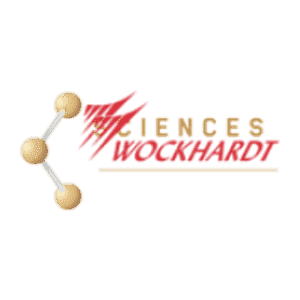Master of Science Pharmaceutical Chemistry
Master of Science Pharmaceutical Chemistry


Download Brochure
There are several reasons why someone may choose to pursue a Master of Science in Pharmaceutical Chemistry:
Career Opportunities: A Master’s degree in Pharmaceutical Chemistry can open up several career opportunities in the pharmaceutical and biotech industries. You can work as a pharmaceutical chemist, research scientist, or in a regulatory role.
Drug Development: Pharmaceutical Chemistry involves the development of new drugs, from discovery to clinical trials. This degree program can provide you with the knowledge and skills required to work in drug discovery and development.
Advancements in Healthcare: The field of Pharmaceutical Chemistry is constantly evolving, with new drugs being developed every year. Pursuing a Master’s degree in this field can allow you to contribute to the advancements in healthcare and potentially improve the lives of people all over the world.
Interdisciplinary Nature: Pharmaceutical Chemistry is an interdisciplinary field, combining principles of chemistry, biology, and pharmacology. Pursuing a Master’s degree in this field can provide you with a unique skillset, making you a valuable asset to any organization.
Research Opportunities: Pursuing a Master’s degree in Pharmaceutical Chemistry can provide you with the opportunity to conduct original research in the field. You can work in academic research labs, government agencies, or private companies, developing new drugs and therapies.
Overall, pursuing a Master’s degree in Pharmaceutical Chemistry can provide you with the opportunity to pursue a rewarding and challenging career in the pharmaceutical industry. You can contribute to the development of new drugs and therapies, potentially improving the lives of people all over the world.

The advances in analytical evaluation of new molecules, development of computer technologies and their applications in molecular modelling approaches have all significantly expanded the scope and use of pharmaceutical chemistry, and ultimately have brought the possibility to provide a broader range of new drugs with a new therapeutic potential.
At the beginning of the 21st century, Pharmaceutical Chemistry has developed new molecules with ever-increasing structural diversity. Apart from the small synthetic ligands and natural products, pharmaceutical chemists focus on the development of modified peptides and proteins, biological agents (e.g. monoclonal antibodies), multifunctional molecular complexes and synthetic vaccines.
This rapid development comes hand in hand with the advances in chemical biology, molecular modelling, and analytical methods generally in all medical fields. As a result, Pharmaceutical Chemistry has become a decisive and increasingly important part of modern medical, pharmaceutical and agrochemical research.
Here are some potential career paths that you may consider after pursuing an MSc in Pharmaceutical Chemistry:
Pharmaceutical Research Scientist: As a pharmaceutical research scientist, you can work in the research and development department of pharmaceutical companies, conducting research on new drug compounds and developing new therapies. You will use your knowledge of Pharmaceutical Chemistry to develop new drug compounds and optimize drug formulations.
Pharmaceutical Sales Representative: As a pharmaceutical sales representative, you can work for pharmaceutical companies, marketing and selling drugs and medical devices to healthcare providers. You will use your knowledge of Pharmaceutical Chemistry to effectively communicate the benefits of your company’s products to potential customers.
Regulatory Affairs Specialist: As a regulatory affairs specialist, you can work in pharmaceutical companies or government agencies, ensuring that drugs and medical devices are in compliance with regulatory guidelines. You will use your knowledge of Pharmaceutical Chemistry to assess the safety and efficacy of drugs and medical devices and ensure that they meet regulatory standards.
Quality Control Specialist: As a quality control specialist, you can work in the pharmaceutical industry, ensuring that drugs and medical devices are of high quality and meet regulatory standards. You will use your knowledge of Pharmaceutical Chemistry to conduct quality control tests on raw materials, intermediates, and finished products.
Clinical Research Associate: As a clinical research associate, you can work for pharmaceutical companies or contract research organizations, managing clinical trials of new drug compounds. You will use your knowledge of Pharmaceutical Chemistry to oversee clinical trials, ensuring that they are conducted in compliance with regulatory guidelines and ethical standards.
Drug Safety Specialist: As a drug safety specialist, you can work for pharmaceutical companies or government agencies, ensuring the safety of drugs and medical devices. You will use your knowledge of Pharmaceutical Chemistry to assess the safety profile of drugs and medical devices and monitor their use in the market.
Overall, a Master of Science in Pharmaceutical Chemistry can provide you with several high-growth career opportunities in the pharmaceutical and biotech industries. These career paths can offer you an exciting and rewarding career, where you can make a significant contribution to society while pursuing your passion for science.






Course Attributes
1st Year -
Pharmaceutical industry Drug Analysis Bioanalysis Drug Design Clinical Research Regulatory Affairs Pharmacology Drug Delivery Manufacturing & Production of Drugs Pharmacokinetics & Pharmacodynamics
Our Star Recruiters



















